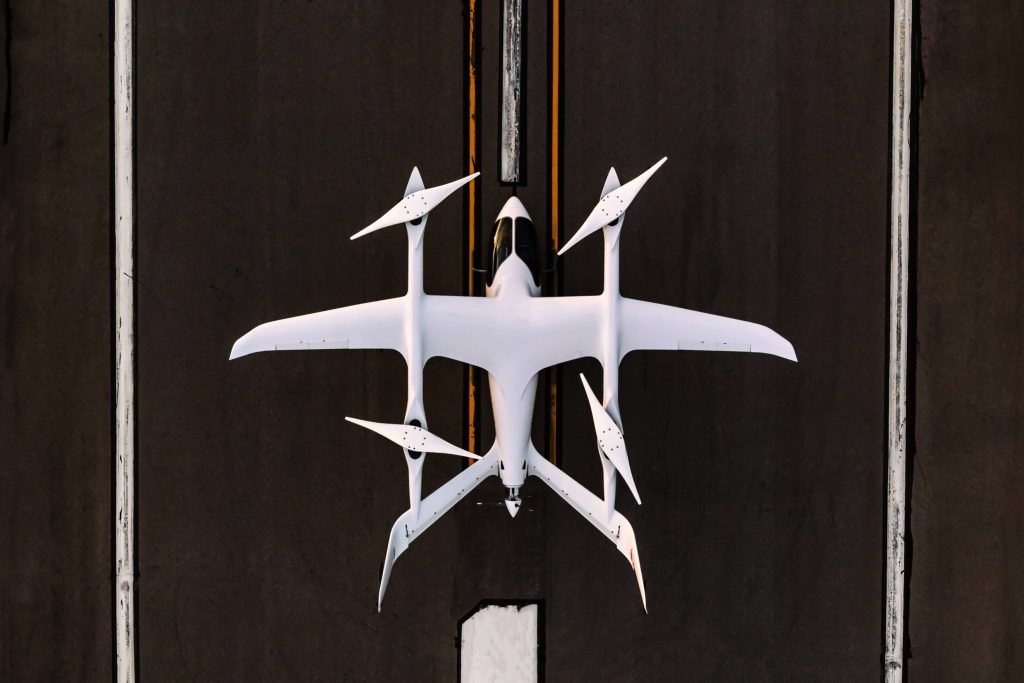After a year of testing, BETA Technologies‘ electric vertical take-off and landing (eVTOL) aircraft, ALIA, has received the first airworthiness approval for manned flight in an electric aircraft from the Air Force, the Air Force announced on May 5.
BETA and the Air Force will sign a contract in June that allows the Air Force access to ALIA as well as their eVTOL simulators in Washington, D.C. and Springfield, Ohio. The airworthiness approval allows ALIA to fly in the Air Force’s AFWERX Agility Prime program, according to the Air Force.
“Achieving the first manned airworthiness authorization in the Agility Prime program is a key milestone,” Col. Nathan Diller, the director of AFWERX, said in a statement. “This not only unlocks the opportunity to begin Air Force directed manned flight tests, but it also shows the high level of maturity of this technology and the high level of maturity of Agility Prime partner companies like BETA.”
The airworthiness approval follows the military 516c standard, according to BETA. ALIA is a distributed, direct-drive electric propulsion system with eight lifting motors used for vertical lift and two internal motors used for cruising, according to BETA. It is 7,000 pounds and has a 50-foot wingspan. BETA developed ALIA to be developed under Part 23 of the Federal Aviation Administration’s certification standard.
“U.S. Air Force engineers spent more than a year examining BETA’s ALIA aircraft, evaluating its design and flight capabilities against the demanding MIL-HDBK-516C standard,” Camron Guthrie from BETA, said in a statement. “U.S. Air Force personnel and subject matter experts evaluated the aircraft’s design and maintenance requirements along with the company’s operations and flight test plans.

BETA’s flight simulators will allow Air Force pilots and engineers to test flight scenarios and potential mission sets. The simulator in Springfield, Ohio is conveniently located near the Air Force Research Laboratory (AFRL) where it will be beneficial for technical experts and acquisition professionals and the Washington, D.C. simulator will provide a resource for future operational concept developers across the Air Force, joint force, and interagency for research, according to the Air Force.
“Electric aviation is a National Security priority and fortunately this was recognized early by the Air Force,” Kyle Clark, BETA’s Founder and CEO, said in a statement. “The speed and efficiency of the Air Force Agility Prime program to support sustainable electric aviation has been remarkable. The people and expertise that the Air Force has brought to the electric aviation industry and specifically our ALIA program is accelerating the development of incredibly capable, safe and reliable aircraft.”
Through the Agility Prime program, AFRL engineers conducted ground vibration testing (GVT) on the ALIA aircraft, according to BETA. GVT is a method of dynamic structural analysis that will help with flight program safety as well as give the Air Force insight into the design of the aircraft.
“This agreement will enable Air Force acquisition professionals to make data-driven decisions informed by real assessments of military utility,” Diller said.
BETA recently announced deals with Blade and UPS.